Have you ever had a ring dig into your finger or your feet wouldn’t fit well with your favorite shoes because they are swollen? It is the swelling caused by the accumulation of fluid in the body.
We learned the most common reasons for bloating and how to get rid of it.
Salt
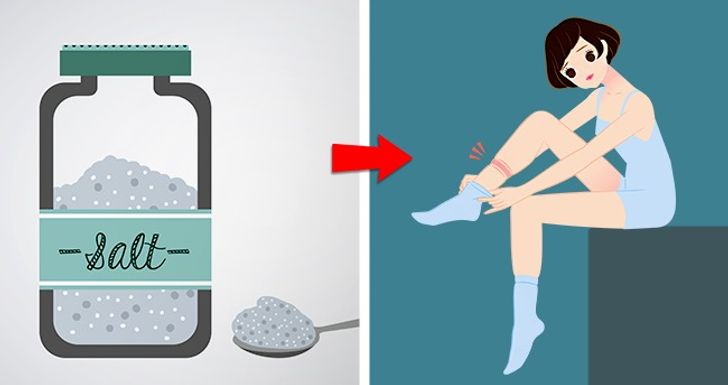
The recommended standard of salt per day is 5 g (0.17 oz) or 1 teaspoon. If we consume more food, our body begins to accumulate fluid.
What you can do: Limit your salt intake. If the food seems bland, use herbs and spices.
Allergy
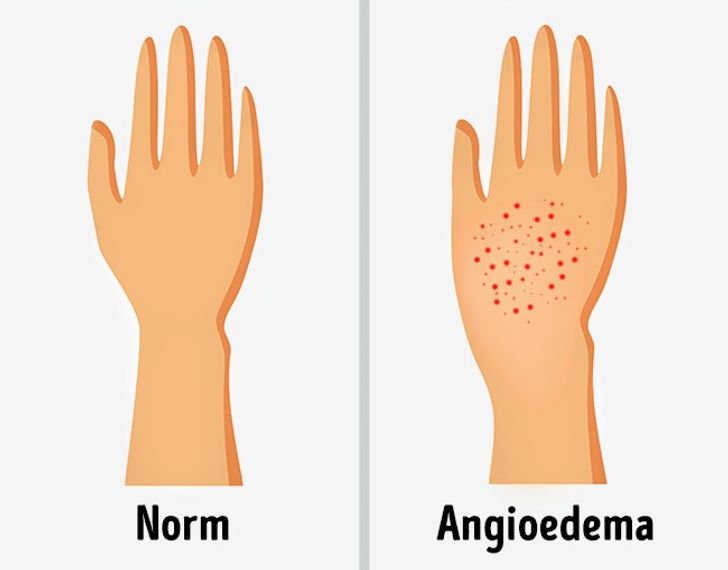
If the swelling is accompanied by itching and redness, it is an allergy.
What you can do: If the swelling develops quickly and reaches the neck and face, you need urgent medical attention. If the swelling is small, antihistamines will help.
Hormones
Hormonal failure is another reason for fluid build-up in the body. If you have swelling, swollen legs, or gain weight, it is more likely hormonal edema.
What you can do: Change your diet: eat foods rich in protein and reduce the amount of sweet, spicy and salty foods. Visit your endocrinologist or gynecologist, who will choose the treatment.
Kidney Diseases
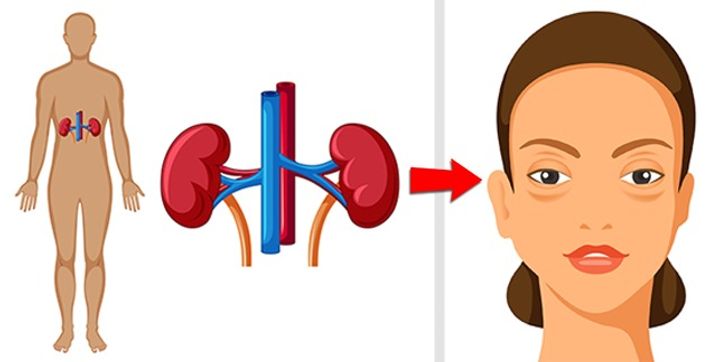
Swelling that appears on the face mainly in the morning can mean kidney problems. Also, you may notice pain in your lower back and a change in the color of your urine.
What you can do: Follow a diet. Sleeping on your back (sleeping on your stomach can cause your face to swell). Visit a nephrologist.
Heart Disease
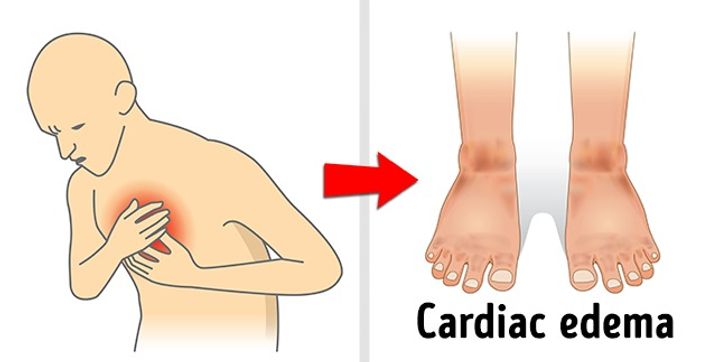
Swelling of the legs and abdomen may indicate heart disease if it is accompanied by chest pain, fatigue, or dyspnea.
What you can do: Cardiac edema should not be treated at home. You must visit a cardiologist.
Medicines
Swelling can occur as a result of taking certain types of medications, for example, antipyretics, pain relievers, or birth control pills.
What you can do: If the medicine causes swelling, see a doctor. Perhaps it can be replaced by an analog that does not produce these side effects.
Lifestyle
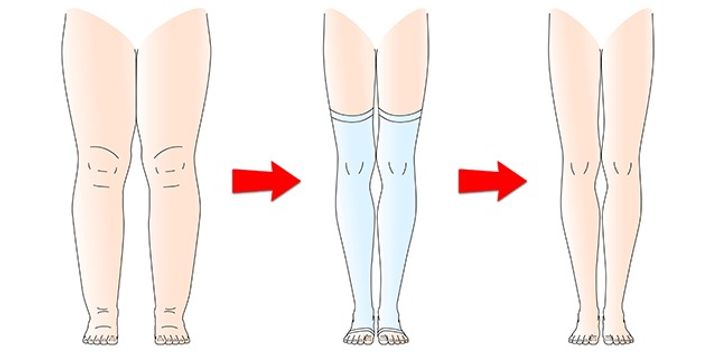
Those who spend most of the day standing or sitting may experience swelling in the legs.
What you can do: People with sedentary work are advised to take regular breaks for some exercise. It is also recommended to stop crossing your legs.
If you stand a lot during the day, take the time to sit down, do a self-massage, wear comfortable shoes, and compression stockings.
Dehydration
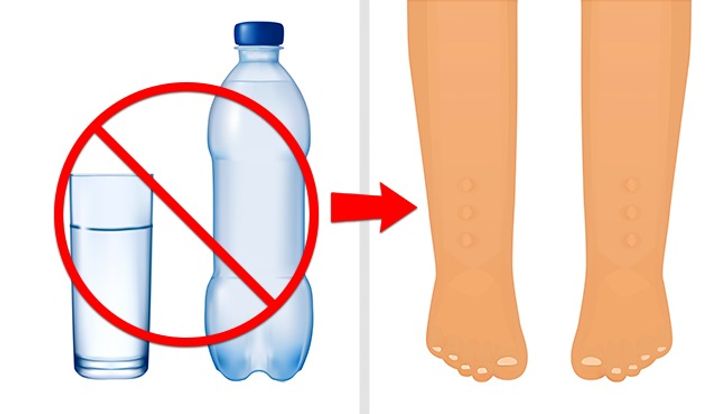
In the initial stage of dehydration, your body begins to accumulate fluid for later. As a result, your ankles, wrists, and the lower part of your belly can swell.
What you can do: Drink at least 1.2 liters of water a day and avoid coffee, alcohol and soft drinks.
Remember that swelling does not always indicate a pathology and can appear even in healthy people in hot weather, due to uncomfortable footwear or after consuming large amounts of liquid and salty foods.









